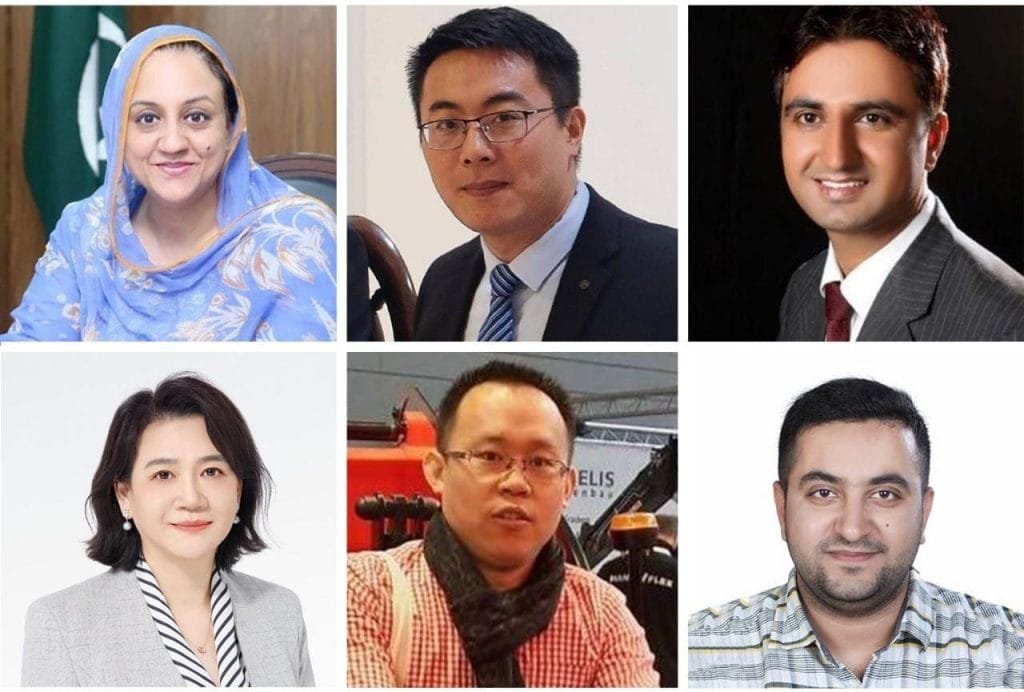Islamabad, 21 June 2023 (TDI): The agricultural cooperation between Pakistan and China under the framework of the China-Pakistan Economic Corridor (CPEC) is thriving, showcasing remarkable developments and innovative practices that have led to increased yields, disease-free crops and capacity building of agricultural institutions and system in Pakistan.
In the face of formidable challenges, including climate change, energy crises, and security issues, both nations remain steadfast in their commitment to fostering agricultural collaboration in the years ahead.
Speakers echoed these sentiments at the highly anticipated webinar “China-Pakistan Agricultural Cooperation under CPEC: Achievements and Challenges,” organized by the Centre for BRI and China Studies at the Institute of Peace and Diplomatic Studies.
Distinguished participants, including industrialists, agriculturalists, entrepreneurs, and educationalists from Pakistan and China, lent their expertise to the event. They shed light on the progress of their respective companies in Pakistan, addressing fundamental challenges and presenting viable solutions to drive further growth.
Dr. Farhat Asif, from the Institute of Peace and Diplomatic Studies, set the stage with her enlightening remarks about the vision and mission of the Centre for BRI and China Studies, emphasizing the significance of the agriculture sector for Pakistan.
Senior Agronomist Ms. Julie Zhu Xiaobo shared about her company, Wuhan Qingfa Hesheng Seed CO. Ltd’s contribution and latest development in the progress of various agriculture products like hybrid rice and canola technology for Pakistan’s agriculture sector.
She highlighted her company’s substantial investments and training initiatives, which have significantly contributed to the development of the agriculture sector in Pakistan.
Also Read: China Study Center at Peshawar University and CBRICS- IPDS collaborating on CPEC
Alan Xi, the executive director of China Machinery Engineering Corporation (CMEC), highlighted the transformative role played by CMEC in modernizing Pakistan’s agriculture sector through digital farming and export-oriented food deep-processing zones.
He also introduced the 3 Tier Farming Model, aimed at bolstering the sector’s productivity.
Dr. M. Rizwan Hamid, a Senior Scientist at China’s Hunan University, added to the fruitful discussion by presenting impressive yield improvements in cotton and corn cultivation in Southern Pakistan.
He stressed the need to enhance research and development collaboration between China and Pakistan to foster innovation in the agriculture sector.
Peter Huang, Commercial Head, LTEC International Agriculture Development Co.(Pvt) Ltd, proposed a comprehensive framework to facilitate the global branding of Pakistani companies, enabling them to export Halal food products to the Middle East and other regions.
Huang also emphasized the significance of collaboration between Pakistan and China in the agriculture and food sectors, where China’s expertise and Pakistan’s abundant resources can mutually benefit both nations.
Associate Professor Dr. Tahir Usman College of Veterinary Sciences, Abdul Wali Khan University Mardan, shed light on the challenges posed by stunted growth in Pakistan, contributing to lower economic development and a sluggish GDP.
He called for a joint effort between China and Pakistan to address the energy crisis and explore the immense solarization potential in Pakistan.
The speakers showcased their companies’ valuable contributions to Pakistan throughout the event, highlighting the immense potential for economic growth and agricultural development.
They emphasized the importance of collaborative efforts between the two friendly nations, offering training opportunities, investments, advanced farming techniques, and innovative technologies as solutions to drive progress.
The webinar was also attended by students, faculty members, media persons, and civil society leaders.
Established in December 2008, The Diplomatic Insight is Pakistan’s premier diplomacy and foreign affairs magazine, available in both digital and print formats.















